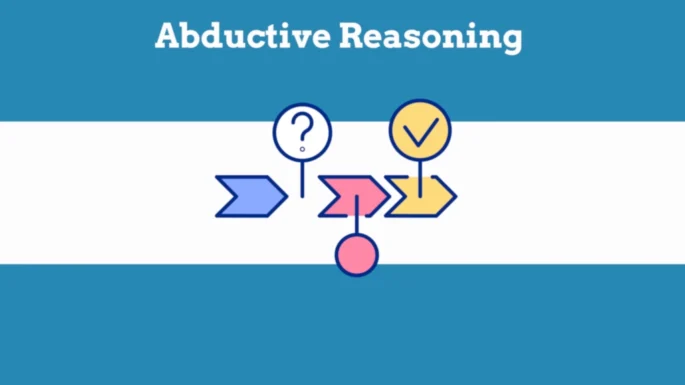Abductive Reasoning
Abductive reasoning is a form of logical reasoning that seeks the most likely hypothesis to explain a set of observations or evidence. The process of abductive reasoning involves considering the available evidence and then formulating the most plausible explanation that accounts for all the facts. This explanation is not definitive, but rather the “best available” or “most likely” conclusion given the current information.
Unlike deductive reasoning which draws certain conclusions from general principles, or inductive reasoning which infers general rules from specific instances, abductive reasoning forms the best guess based on limited information.
For example, You walk into the kitchen and notice a strong smell of smoke. Using abductive reasoning, you might hypothesize that someone burned food while cooking, as this seems the most probable explanation. However, there could be other possibilities, such as a malfunctioning appliance or a nearby fire. Abductive reasoning suggests the most likely cause, but doesn’t eliminate other potential explanations.
Here are a few more examples of abductive reasoning:
- A doctor examines a patient with a sore throat, fever, and swollen glands. She infers that the most probable diagnosis is strep throat and orders a test to confirm.
- A detective finds a broken window and missing jewelry at a crime scene. He hypothesizes a burglar broke in and stole the valuables, even though other scenarios, like insurance fraud, are possible.
- You can’t find your car keys. You reason the most likely explanation is you left them in your other coat, so that’s the first place you look.
In each case, abductive reasoning is used to form a hypothesis that best explains the evidence at hand. This “inference to the best explanation” is a starting point, but doesn’t guarantee certainty like deduction does. The conclusion should be further investigated to confirm or disprove.
Abductive Reasoning Practice Questions
